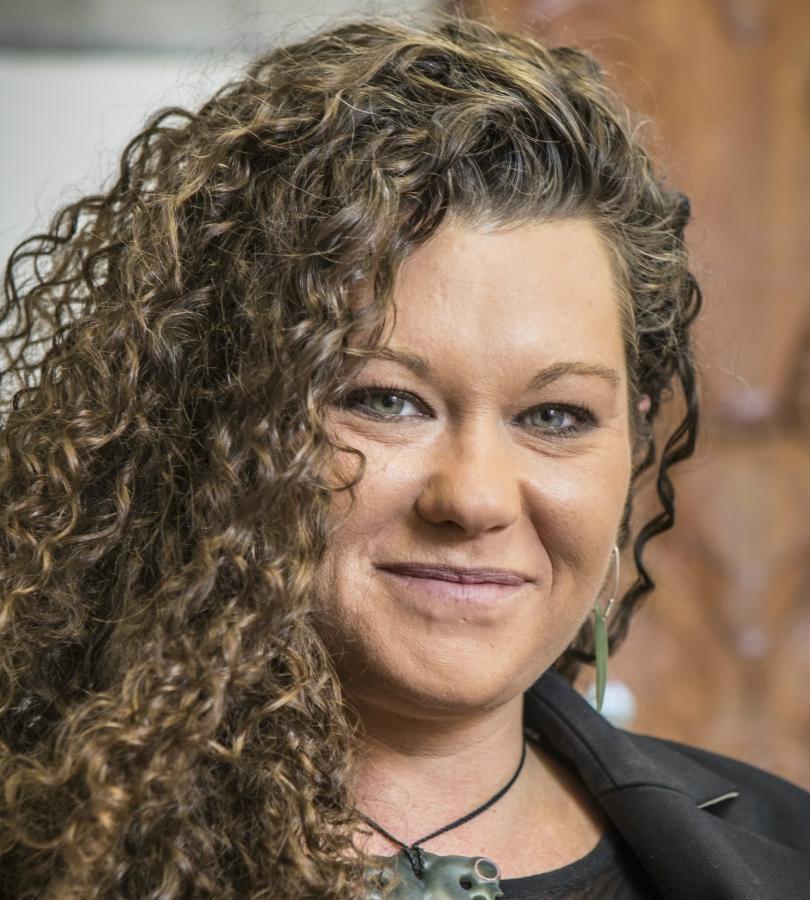Sacha McMeeking spoke at the 2020 Hillary Laureate Dinner to give the closing remarks. She somehow managed to weave together so many unique threads that touched on colonisation, climate change, Te Ao Māori and some real challenges about who we are taking along with us and will lead in the future. Sacha is Head of School of Aotahi: Māori and Indigenous Studies at the University of Canterbury. The evening was to honour the latest Hillary Institute Laureate, Christiana Figueres.
Other speeches and videos are here: https://www.hillaryinstitute.com/2020-hillary-laureate-dinner
This talk as video: https://youtu.be/7d1LCK_9754
Some excerpts of the talk:
“One of the practises in Te Ao Māori that I don’t think we have carried through enough is that most of our chiefly types didn’t get there because they were the best person for the job, they got their because when they were young somebody picked them and made them do something they were utterly unprepared to do. So collective imagination should be partnered with – where is your Rangatahi, who are you taking with you? What we need to do here tonight is to clothe each other in expectation… I challenge you all to ask yourselves – what are you going to give up? Who are you going to believe in? Who are you going to jump start? And what are you going to expect them to do for the world. I can tell you a few things that I expect all of you to do because I know quite a few of you and I know your potential, I know your roles, I know your talents – that knowledge is arguably the most important component for belief. When we talk about Manaakitanga, it’s one of those words that makes us feel good, because we think about hospitality and being cared forgot if you are going to Manaaki someone, you have got to know them – you have got to genuinely know them, you have got to genuinely care… so if we are genuinely going to do all of those things, then we have also got to deepen the relationships with each other, which is the reason I am most grateful to be here tonight sharing with you under an envelope of expectations that you will give up something tonight, that you will take someone with you tomorrow and that collectively we will self determine a better future.”
“It would be quite common at this point for a Maori speaker to tell you soothing tales from our traditional knowledge – but that’s not my lane… Instead what I want to do is talk to you about our practices and what I think our practices can teach us all. The first is the power of small deeds. I think in New Zealand we are really uncomfortable with small deeds… we are a small country so we don’t like small things. We like to be the first to grant women the vote and we like to be doing grand international statements like nuclear free. But I think actually what things like the Ngai Tahu settlement teach us is this power of small deeds. So one of the things in the Ngai Tahu settlement which, when I was young and impetuous and probably a bit arrogant, I didn’t’t understand at all was the power off the place name changes. So in the Ngai Tahu settlement, and in all settlements that followed, there are a raft of place name changes. And I used to think but there is so much egregious unconscionable history – how can place name changes be at a level commensurate to offset the horrors of that history. And then as I got older and started to appreciate that it is not just radical protest action that changes the world, I realised that the power of place names is that it changes habits. So that now it is the exception to be on a plane when they actually fly and the pilot doesn’t mention Aoraki. That power of changing habits is remarkable and it is something that I think we need to get more familiar with. Because we expect and perhaps with the naivety and impetuosity of youth that’s got a long hangover – we expect that grand normative wins will change the world. We expect that the declaration of women’s equality will translate to pay equity and a reduction in domestic violence. But that grand normative change has done neither of those things – what has moved us closer to those are the small steps, the changes to habit, the changes to daily routine. And that is what place name changes did. So just over 20 years ago when the Ngai Tahu settlement was passed it caused outrage that we might refer to this landscape by its original names. And now it is just habit, now it is just an expectation because day by day, small step by small step, normative change came through habit, through routine. And that is something that we all have the power to do. So my first challenge is to look at our daily habits and our daily routines.”
A profile on Sacha in Stuff: https://i.stuff.co.nz/the-press/news/123070316/activist-and-advocate-for-social-change
For more content visit www.theseeds.nz





